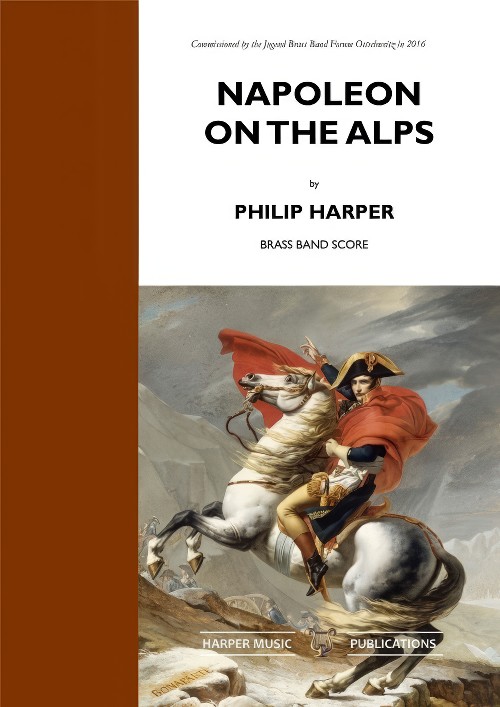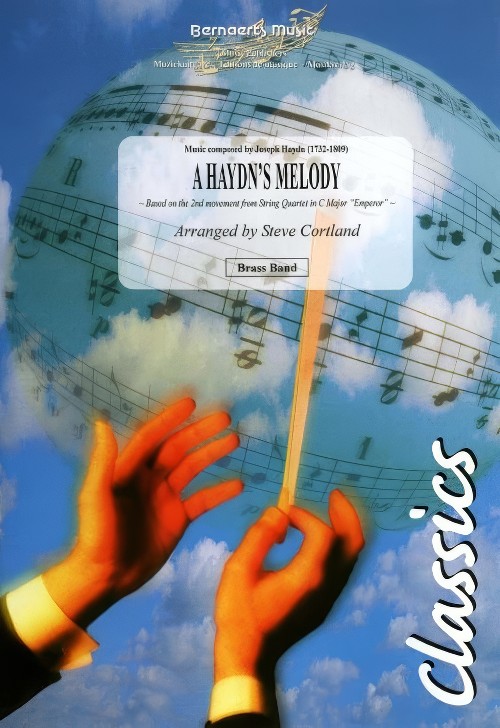Results
-
 £116.10
£116.10Emperor Waltz (Kaiserwalzer) - Johann Strauss
Estimated dispatch 5-14 working days
-
£32.95
The Emperor - Percy Code
Estimated dispatch 5-14 working days
-
 £26.50
£26.50 -
 £32.95
£32.95EMPEROR, The (Trombone or Euphonium/Brass Band) - Code, Percy
.
Estimated dispatch 7-14 working days
-
£26.50
Black Emperor - Whittle, J
Includes a full band set (no score)
In Stock: Estimated dispatch 1-3 working days
-
 £76.99
£76.99Bread and Games - William Vean
'Panem et Circenses', Bread and Games were essential for keeping the citizens of ancient Rome in check. While the bread was meant for the poorest among the Romans, the Games were Popular Pastime Number One for everybody.There were different kinds of games, such as chariot races (especially popular with female spectators), or wild-beast fights, where lions, tigers, bulls or bears were set on one another or even on human beings. Most popular, however, were the Gladiator fights. In 'Bread and Games' William Vean depicts one of the many fights in the antique Colosseum. 1. Entrance of the Gladiators: By powerful bugle-calls the attention of the peoplewas asked for, after which the Gladiators entered the Arena at the sound of heroic marching-music.2.Swordfight: We can hear that the fights were not mere child's play in this part.On the contrary, they were a matter of life and death and were fought accordingly.3.Mercy of the Emperor: Sometimes a wounded gladiator could be fortunate, depending on the mercy of the audience. Waving one's handkerchief meant mercy, a turned-down thumb meant no pardon. The Emperor had the right to take the final decision, but he usually complied with the wish of the majority of the public. 4.Lap of Honour: Gladiators were mainly selected among slaves, convicted criminals, or prisoners of war. Consequently, winning was very important, as it would mean fame, honour and sometimes even wealth. A lap of honour, therefore, was the winner's due reward.
Estimated dispatch 5-14 working days
-
 £74.99
£74.99Napoleon on the Alps - Philip Harper
This dramatic piece is based on the famous oil painting by Jacques-Louis David, 'Napoleon Crossing the Alps'. There are three parts: Approaching the Great Saint-Bernard Pass depicting snowy mountains and the determined march of the NapoleonicArmy: The Emperor Napoleon a noble and heroic theme, accompanied by stately fanfares with an exotic flavour: and Onwards, to the Empire! describing Napoleon's relentless drive to expand the French empire across the globe at. This piecewas first performed directly in front of the Napoleon Museum in Arenenberg, Switzerland in Summer 2016.
Estimated dispatch 5-14 working days
-
£72.99
Hail Nero - Triumphal March (From Quo Vadis) - Miklos Rozsa
In the 1950 motion picture "Quo Vadis" starring Robert Taylor and Peter Ustinov still is one of the greatest movies in the history. The music was composed by Miklos Rosza. The "Hail Nero - Triumphal March" beautifully arranged by Steven Verhaert gives an impression of the greatness of the Roman empire in the days of Emperor Nero.
Estimated dispatch 5-14 working days
-
 £74.99
£74.99Napoleon on the Alps (Brass Band - Score and Parts) - Harper, Philip
This dramatic piece is based on the famous oil painting by Jacques-Louis David, 'Napoleon Crossing the Alps'. There are three parts: Approaching the Great Saint-Bernard Pass depicting snowy mountains and the determined march of the Napoleonic Army; The Emperor Napoleon a noble and heroic theme, accompanied by stately fanfares with an exotic flavour; and Onwards, to the Empire! describing Napoleon's relentless drive to expand the French empire across the globe at. This piece was first performed directly in front of the Napoleon Museum in Arenenberg, Switzerland in Summer 2016. Duration: 10.00
Estimated dispatch 7-14 working days
-
 £53.99
£53.99A Haydn's Melody (Brass Band - Score and Parts) - Haydn, Joseph - Cortland, Steve
Based on the 2nd movement from String Quartet in C Major "Emperor". Duration: 3.20
Estimated dispatch 7-14 working days
